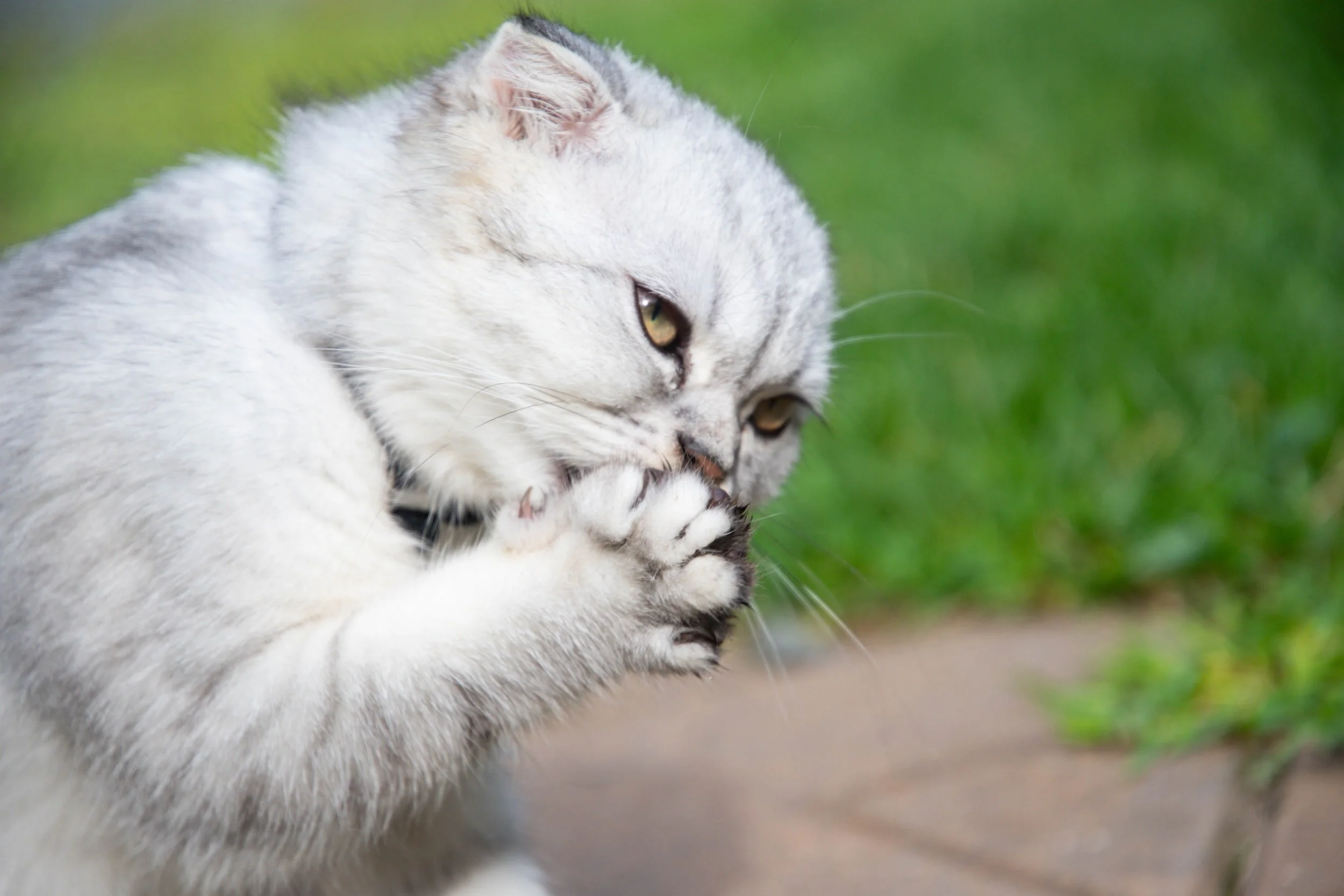Hairballs are a common problem in cats, especially long-haired breeds. Cats are very good at keeping themselves clean. However, during the cleaning process, they can swallow loose hair which can collect into balls inside their stomach. Hairballs can be distressing to watch, messy to clean up and can also cause intestinal blockages, which can be a serious health problem for your cat. So, what are the symptoms you can look out for, when do hairballs become dangerous and how can you minimise hairballs.
What is a cat hairball?
A cat hairball is a ball of dead hair and digestive juices that have formed in your cat’s stomach. As your cat grooms themselves, loose hairs collect on the surface of their rough tongue and get swallowed.
Most hairs pass through the gastrointestinal tract without any issues, however some of it can remain in their stomach and gradually accumulate into a clump. Usually, your cat will vomit up the hairball to get rid of it. The vomit primarily contains hair, but can also include semi-digested food. The hairball comes up through the tubular shaped oesophagus, so will often appear in the shape of a tube, rather than round.
What are the symptoms of hairballs in cats
It can be distressing to watch a cat eliminate a hairball. The common symptoms of hairballs in cats include retching, gagging, or acting like they are trying to vomit. Usually, your cat will then vomit the hairball in a relatively short time. The vomit can also include semi-digested food.
When can cat hairballs become dangerous?
If you notice the following concerning symptoms, contact your vet immediately as it could be sign that the hairball has passed from the stomach into the small intestine.
Repeatedly retching/gagging with no sign of a hairball
Reduced appetite
Lethargy
Constipation
Diarrhea
Swollen or sensitive stomach
How to help prevent hairballs in cats
There are several steps you can take to reduce the likelihood or frequency of hairballs in cats:
Groom your cat regularly – regular brushing to remove dead and loose hair will reduce the amount of hair for them to swallow during self-grooming. Long haired cats will benefit from a daily brush. Short haired cats should be brushed weekly. It is also a great bonding activity between you and your cat. For full details on how to groom your cat click here.
Hairball cat food – many pet food manufacturers make special hairball reduction formula cat food. These are formulated with a blend of fibres to encourage the swallowed hair to pass naturally instead of collecting in the stomach. They also include vitamins and minerals to keep your cat’s fur in top shape and reduce hair loss. Our vets can provide you with the best advice about what diet is most suitable for your cat.
Speak to your vet – if your cat has hairballs frequently its worth getting in touch with your vet. Numerous hairballs can be a result of over grooming, which can be linked to stress. It can also be linked to problems in the gastrointestinal tract.
As meticulous groomers, hairballs are a common problem in cats, especially those with long hair. If you are concerned about the frequency of your cat’s hairballs or if you have any questions about your cat’s health, get in touch with us on 03 8784 4444.




